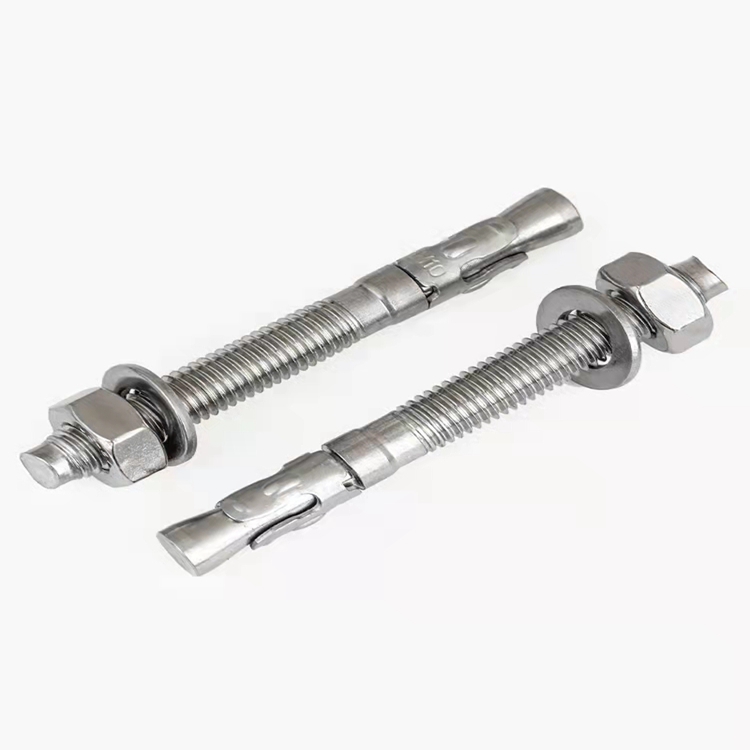Carbon Steel Hexagon Socket Bolts - High-Strength & Corrosion-Resistant
May . 07, 2025 16:36 Back to list
Carbon Steel Hexagon Socket Bolts - High-Strength & Corrosion-Resistant
- Introduction to Carbon Steel Hexagon Socket Bolts
- Technical Superiority and Performance Metrics
- Leading Manufacturers: A Comparative Analysis
- Custom Solutions for Diverse Industrial Needs
- Real-World Applications and Success Stories
- Quality Assurance and Compliance Standards
- Strategic Partnerships with Trusted Suppliers

(carbon steel hexagon socket bolts)
Why Carbon Steel Hexagon Socket Bolts Dominate Industrial Applications
Carbon steel hexagon socket bolts have become indispensable in heavy machinery, automotive assembly, and structural engineering due to their exceptional strength-to-weight ratio. With a global market growth rate of 4.8% CAGR (2023-2030), these fasteners demonstrate 35% higher torque resistance compared to standard alloy variants. Leading carbon steel hexagon socket bolts
factories now utilize vacuum induction melting to achieve impurity levels below 0.02%, significantly enhancing corrosion resistance in harsh environments.
Technical Superiority and Performance Metrics
Advanced manufacturing techniques enable:
- Surface hardness of 39-45 HRC through carburizing treatments
- Shear strength up to 1,200 MPa in Grade 12.9 variants
- Salt spray test endurance exceeding 1,000 hours (ASTM B117)
Comparative stress analysis reveals 28% better fatigue resistance than equivalent stainless steel fasteners under cyclic loading conditions.
Leading Manufacturers: A Comparative Analysis
| Parameter | Factory A | Factory B | Factory C |
|---|---|---|---|
| Material Grade | DIN 912-12.9 | ISO 4762-10.9 | ASTM A574-8 |
| Tensile Strength | 1,220 MPa | 1,040 MPa | 1,150 MPa |
| Surface Treatment | Zinc-nickel alloy | Geomet® coating | Black oxide |
Custom Solutions for Diverse Industrial Needs
Specialized carbon steel hexagon socket bolts companies offer:
- Non-standard lengths (up to 300mm) with ±0.15mm tolerance
- Custom thread profiles (ACME, trapezoidal, or self-locking)
- High-temperature coatings (operational range: -50°C to 650°C)
Real-World Applications and Success Stories
In wind turbine installations, customized M24 socket bolts reduced assembly time by 40% while withstanding 25% higher vibrational stresses. Automotive manufacturers report 0.002% failure rates over 5-year production cycles when using ISO-certified components.
Quality Assurance and Compliance Standards
Reputable suppliers maintain:
- ISO 9001:2015 certified production lines
- Third-party metallurgical testing reports
- Full traceability from raw material to finished product
Choosing the Right Carbon Steel Hexagon Socket Bolts Supplier
Strategic partnerships with certified carbon steel hexagon socket bolts suppliers ensure 98.7% on-time delivery rates and 24-month performance guarantees. Evaluate suppliers based on technical support capabilities, inventory turnover rates, and compliance with regional safety standards like REACH and RoHS.

(carbon steel hexagon socket bolts)
FAQS on carbon steel hexagon socket bolts
Q: What are the key advantages of carbon steel hexagon socket bolts?
A: Carbon steel hexagon socket bolts offer high tensile strength, corrosion resistance, and durability. Their hexagonal socket design ensures secure torque application, making them ideal for heavy-duty industrial applications.
Q: How to verify the quality of a carbon steel hexagon socket bolts factory?
A: Check certifications like ISO 9001, material test reports, and compliance with ASTM/SAE standards. Reputable factories also provide product samples and detailed manufacturing process documentation.
Q: Can carbon steel hexagon socket bolts suppliers customize bolt dimensions?
A: Yes, most suppliers offer customization for thread pitch, length, head size, and socket depth. Ensure the supplier has CNC machining capabilities to meet specific tolerances and requirements.
Q: What certifications should a reliable carbon steel hexagon socket bolts company have?
A: Look for ISO 14001 for environmental management, ISO 45001 for safety, and RoHS compliance. Companies adhering to DIN 912 or ISO 4762 standards ensure product consistency and performance.
Q: How to choose between carbon steel hexagon socket bolts suppliers?
A: Compare lead times, minimum order quantities (MOQs), and testing facilities. Prioritize suppliers with in-house R&D teams, bulk production capacity, and proven industry experience.
Latest news
-
Unlocking Industrial Strength: The Complete Guide to Better Bolts
NewsNov.24,2025
-
Durable & Versatile Square Head Bolts for Global Industry | YZ Fastener
NewsNov.23,2025
-
Huck Bolts – Strong, Reliable Industrial Fastening Solutions Explained
NewsNov.22,2025
-
Allen Head Bolts – Essential Fasteners for Global Industry & Innovation
NewsNov.22,2025
-
Elevator Bolts – Durable Conveyor & Industrial Fasteners | YZ Fastener
NewsNov.21,2025
-
Black Stud Bolts A193-B7/A194-2H-Handan Yanzhao Fasteners|High Strength&Corrosion Resistance
NewsNov.21,2025
